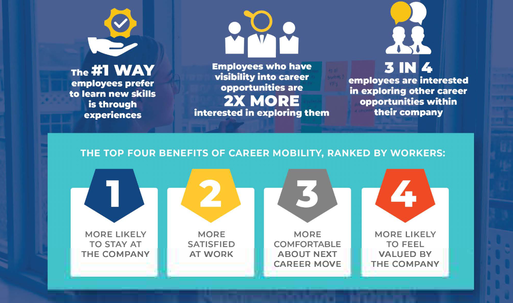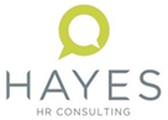|
Welcome to the latest edition of our newsletter. Coming up, we are going to be looking at ageism in the recruitment process and changes to the Dismissal and Re-engagement code of practice. The importance of addressing age discrimination and implementing non-discriminatory recruitment processes Age discrimination in the workplace remains an issue that affects individuals and businesses alike, manifesting in various ways, from hiring practices to training and advancement opportunities. Addressing age discrimination is not only a legal obligation, but imperative for Companies that are seeking to harness the full potential of a diverse workforce. A recent article in HR Magazine highlighted how the charity, Age UK were fined £4,000 for age harassment after a representative ‘harassed a job applicant on the basis of age, a tribunal has found’. This demonstrates that non-discriminatory recruitment processes are essential in creating an inclusive work environment. This involves using age-neutral language in job advertisements, focusing on skills and experience rather than age-related criteria and training recruitment panels to recognise and avoid implicit biases. Other processes include using anonymous CV’s where candidates date of birth or graduation dates are removed; having structured interviews which comprise of a standardised set of questions for all candidates, and the use of practical tests or assessments that are directly relevant to the job tasks. By promoting a culture of inclusivity and fairness, Companies can attract a broader range of candidates, enhance employee morale and benefit from the varied perspectives and experiences that come with a diverse age demographic. In turn, this can lead to greater innovation, improved problem-solving and a more dynamic, resilient workforce. Furthermore, fostering an age-diverse workforce can significantly enhance a Company’s adaptability and competitiveness. Older employees bring a wealth of experience, institutional knowledge and mentorship capabilities that can be invaluable to younger team members. Conversely, younger employees often introduce fresh perspectives, tech-savviness and new approaches to problem-solving. By integrating these complementary strengths, Companies can build more cohesive and versatile teams, drive business growth and innovation, ensuring that the Company is well-equipped to meet the challenges of a rapidly evolving market. NEWS:
What is fire and re-hire? ‘Fire and re-hire’ is a term referring to the process where an employer needs to make contractual changes to an employee’s terms and conditions. Essentially, firing the employee and re-hiring them on new terms and conditions, for example a change of shift patterns, reducing holiday allowance or pay and is often an exercise conducted to cut costs, as the terms are often less favorable. It is a highly controversial approach and has drawn criticism for its potential to undermine job security and employment rights, and notably made the headlines with P&O ferries in 2022 firing over 800 staff and prompted calls from trade unions and politicians to strengthen employment laws. Where changes need to be made to an employee’s contract of employment, it is best practice to approach this through consultation and agreement with the employee and ‘fire and re-hire' should be the last resort when extensive consultation and all alternatives have been considered. The new Statutory Code of Practice on ‘Dismissal and Re-engagement' coming into force in July 2024 outlines the legal expectations of a business and what must be considered regarding whether to use dismissal and re-engagement. These include:
The code also outlines other considerations that should be followed. Please do not hesitate to get in touch if you wish to discuss how to manage any of these changes within your business, or any other matters relating to employment contracts and legislation. KEY DATES FOR DIARY: 1st August – Cycle to Work Day 5th September – International Day of Charity 15th September – National Pension Awareness Day 18th September – International Equal Pay Day 23rd – 29th September - National Inclusion Week WHAT'S NEXT: A team of VIPR Solutions employees and I will be completing the National 3 Peaks Challenge to raise money for their charity partner, Cancer Research UK. We are setting off in the early hours on Friday 28th June, enroute to Scotland to tackle Ben Nevis on Saturday morning, before driving onto climb Scafell Pike on the same day! Finally, in the early hours of Sunday morning we will climb Snowdon to watch the sunrise. In total, we will be walking c.30-40km with est 2900 metres of elevation! Pictures to follow! If you’d like to donate to support this incredible charity, our QR code is below and any donations are gratefully received. I look forward to hearing from you soon.
Jo
0 Comments
Apprenticeship UpdateI wanted to share some interesting news regarding apprenticeships. If you have an employee who is over the age of 21, apprenticeships are still 95% covered by the government. This makes them an exceptionally cost-effective method to train your workforce.
Education secretary Gillian Keegan said: “Apprenticeships are a fantastic way for businesses to develop the skills they need, and these new measures will help more businesses and young people benefit from them. Our plan to deliver a high-growth, high-skilled economy is working, with more opportunities available to young people than ever before.” This is great news for growing businesses who are looking to develop and nurture their talent pipeline, as it reduces costs and burdens for businesses. From saving on recruitment costs, diversification and inclusion across teams, increased retention rates, building a culture of learning and development, to fixing skills shortages there are numerous advantages to investing in apprenticeships. By offering an apprenticeship you can ensure that you are investing in the right skills for your business, that are aligned to your current and future needs. Please don’t hesitate to get in touch, if you wish to discuss if an apprenticeship is right for you and how we can help. Welcome to the latest edition of our newsletter. Coming up, we are going to be looking at Social media policies and an update on HR news. Is your social media policy clear? Following an employment tribunal that ruled that an employee was unfairly dismissed for a Facebook post that bosses wrongly claimed was an attack on their business, found the employer did not act reasonably. In this instance an employee reposted a meme, without commenting, regarding management styles and workplace cultures, which the employer claimed was an attack on their business. However, the tribunal ruled that “it was difficult to say whether anybody looking at this meme would link it directly to the claimant’s working environment” and a discussion with either a reminder of their social media policies, or a warning would have been merited to avoid this happening again in the future. No notes from the meetings with the employee were kept throughout this process, including notes following their right to appeal meeting, where the decision to dismiss the employee was upheld. They also noted the employer could have given the employee “further guidance about social media use or a verbal or written warning before dismissing her” and that the disciplinary procedure and process was unfair. By having a clear social media policy in place, employees understand the expectations on what content is appropriate for them to share online and the accepted standards for employee behaviour in terms of usage in the workplace, so it doesn't detrimentally affect productivity. It also takes steps to mitigate risks such as confidentiality, intellectual property, defamation and compliance of regulations such as GDPR, in addition to taking steps to protect the Company’s brand and reputation. By ensuring your policies are clear, up to date and communicated to employees, you can help prevent potential misunderstandings and the likelihood of disciplinary issues arising and if they do, there is a process in place to ensure they are dealt with fairly, consistently and in adherence to the Company grievance and disciplinary procedures. Please contact us if you need help creating or updating your social media or any other Company policies. NEWS As from 6th April 2024 the new Flexible Working Act comes into effect. The key changes to be aware of are:
Flexible working is a broad term that relates to an employee's working arrangement, regarding when, how and where they work. A statutory request is a request to change an employee’s terms and conditions relating to their hours, times or place of work. This could include the number of hours and days they work, for example part-time, term-time, compressed hours; adjusting their start/finish times; their working location such as hybrid/homeworking etc. What are the benefits of flexible working? By offering flexibility in work arrangements, Companies can demonstrate their commitment to accommodating employee’s individual needs and preferences. It enables employees to balance work and personal commitments, which contributes to improved mental well-being and increased job satisfaction, ultimately leading to higher productivity and employee retention. Flexible working also facilitates increased diversity and inclusion within a Company, by providing ways and means to accommodate diverse needs and circumstances in which people can work, this in turn helps attract a more diverse mix of talent. It also fosters a culture of respect, trust and inclusion, where employees feel supported and valued regardless of their circumstances. By embracing flexible working practices, a Company can attract and retain top talent, become more adaptable to change and cultivate a positive culture that enriches collaboration, creativity, problem-solving, all of which can help a Company achieve their overall objectives. Please do not hesitate to get in touch if you wish to discuss how to manage any of these changes within your business, or any other matters relating to flexible working. Statutory paternity leave changes As from 6th April changes to the way Paternity Leave and Pay can be claimed and taken will come into effect, which will make it more flexible for fathers and partners to access. Currently, only one block of leave can be taken, which can be either one or two weeks, however the changes mean that fathers will now be able to take two non-consecutive weeks of leave. They can take their leave and pay at any point in the first year following the birth or adoption of their child and they are now only required to give their employer four weeks’ notice, prior to each period of leave. KEY DATES FOR DIARY: April – Stress Awareness Month 1st April – National Minimum Wage rate increase comes into effect, increasing from £10.42 per hour to £11.44 per hour 6th April – Changes to Flexible Working Act and The Paternity Leave Amendment Regulations 2024, come into effect 13th – 17th May - Mental Health Awareness Week …and finally Last weekend I went to Copenhagen to a Hyrox gym competition and competed in the ladies pair event. The format was Our target was sub 1.10.We completed it in 1.07 and came 21st out of 247 teams. I look forward to hearing from you soon.
Jo Welcome to the latest edition of our newsletter. Coming up we are going to be looking internal career development and the impact on staff retention and the latest HR news. Promoting internal career development opportunities With the current skills gap in the UK and two-thirds (66%) of large UK businesses saying they struggle to recruit employees with the skills they need, investing in learning and development has never been more crucial. Recent studies also show that employees are more likely to stay loyal to your organisation if they can explore internal jobs. It’s no surprise that investing in employee growth has multiple benefits and internal career development and talent mobility can play a vital role in staff retention. According to the 2023 Global Talent Mobility Study, employees prefer using internal job boards or intranet to explore internal career opportunities, rather than having a direct conversation with their manager.  By creating a culture that focuses on workplace belonging, employees are more likely to feel comfortable having a conversation with their manager about career opportunities, without fear of managers unconsciously thinking they are planning to leave. This level of engagement is crucial to the success of the overall Company and fostering a positive workplace culture. Internal career development provides employees with opportunities to enhance skills, acquire knowledge and contribute to their professional growth, making their contributions more valuable to the Company, in addition to growing your internal talent pipeline of skilled, knowledgeable employees. By establishing clear career paths, outlining potential roles and progression opportunities that are supported by creating a learning culture which embraces training and innovation, setting SMART goals and ensuring internal job opportunities are made visible to employees, Companies can create a culture that values and supports career development and the growth of employees. In addition, by introducing an internal employee referral scheme you can unlock your employees' network, by leveraging their connections and industry knowledge to identify potential new candidates. The benefits of this include reducing recruitment costs, increases the likelihood of finding candidates that are the right cultural fit and employees are more likely to refer people they believe would positively contribute to the team, whilst fostering a sense of engagement and ownership among existing employees. All of which contributes to strengthening the team and the overall success and growth of the Company. NEWS National Insurance Changes from January 2024 The National Insurance Class 1 rate will fall from 12% to 10% from 6th January 2024 as The National Insurance Contributions Bill was passed on 30th November. Self-employed workers will also see tax reductions from 6th April 2024 with Class 2 National Insurance payments abolished and the rate on Class 4 National Insurance will be cut to 8%. National Minimum Wage Changes from April 2024 The Government has announced the National Minimum Wage (NMW) rates will increase from £10.42 per hour to £11.44 per hour, as from 1st April 2024.  What's next? I competed Hyrox at Excel London on 26th November and completed it in 1 hour 9 minutes. I’m sure next year will see an equal amount of exciting new fitness challenges ahead! And finally....
I would like this opportunity to thank you all for your continued support over the course of this year and I’m looking forward to what 2024 has in store! Wishing you all a wonderful Christmas and a Happy New Year. Jo Welcome to the latest edition of our newsletter and I hope you all had a great summer. Coming up this month we are going to be looking at how investing in training your staff can play a vital part in staff retention. Finally, some key dates for your diaries. Effective Learning & Development – the impact on employee retention It should go without saying that investing in your employees personal and professional development, whether that be through coaching, soft skill development, mentoring or certified training courses is a sure-fire way to increase employee engagement and loyalty. No matter their level of experience, the position they hold within the business, their tenure and so on, training and continuing professional development helps ensure that employees are proficient and possess up to date skills for their profession, which is especially relevant given the current skill shortages the UK market is facing. LinkedIn have recently published their 2023 Workplace Learning Report which shows that “Progress towards career goals is the No. 1 motivation for employees to learn”. Couple this with the fact that their report also shows that 93% of organisations are concerned about employee retention and that the No. 1 way organisations are working to improve retention is by “providing learning opportunities” clearly demonstrates the importance of investing in your employees ongoing learning and development. The report also states that ‘people who aren’t learning will leave’ and that ‘3 of their top 5 factors that drive people to pursue new jobs reflect their desire to stretch, grow and develop new skills’. Their report shows that top 5 factors when considering a new job are:
Other interesting statistics from their report include:
By encouraging open and honest conversations with your employees to understand what their career goals are, identifying what training they need and supporting them through this journey, with a structured and well thought out L&D strategy you will be one step closer to building an engaged, motivated and skilled workforce. By creating a culture of continuous improvement you are demonstrating to your employees their value within the company and are invested in supporting them achieving their career goals. Not only that, but L&D goes a long way to attracting new talent into the business, with a clearly defined career path. In summary, if you’re looking to improve morale, job satisfaction, productivity, performance and improve staff turnover, then having a well thought out learning and development strategy that empowers your workforce should be a top priority. Here at Hayes HR, we are well placed to create a L&D strategy, implement structured training, coaching and retention strategies, so please don’t hesitate to get in touch. KEY DATES FOR DIARY: Month of October - Black History Month 10th October – World Mental Health Day 20th October – Wear it Pink day, in support of Breast Cancer Now What's next? I recently completed a 5k run with some of the team at Damhurst & Co, in support of Insurance United Against Dementia. We set a target of £500 and so far we have managed to raise £505. Well done to everyone who took part in raising money for this incredible cause. If you would still like to donate, please follow the link. https://lnkd.in/eDfSTCBE I look forward to hearing from you soon.
Jo References: Linkedin.com, 2023 Workplace Learning Report, online, available at https://learning.linkedin.com/content/dam/me/learning/en-us/pdfs/workplace-learning-report/LinkedIn-Learning_Workplace-Learning-Report-2023-EN.pdf (last accessed 22/09/2023).  The summer holidays are here which can only mean juggling work and parenting responsibilities, which never gets easier. This year both boys 16 and 17 are off to Reading Festival and Boardmasters! Lots of fun for the boys and worry for me! Coming up this month we are going to be looking at employers’ health and safety responsibilities for remote workers and the latest HR news, focusing on the importance of grievance and disciplinary procedures. Finally, some key dates for your diaries. Remote / Hybrid Working – Managing your employees Health and Safety. The Health and Safety at Work etc Act 1974 states that “It shall be the duty of every employer to ensure, so far as is reasonably practicable, the health, safety and welfare at work of all his employees”. The employer’s duty of care is not only applicable to employees that are based in the workplace, but as the prevalence of hybrid / fully remote working continues to increase, the legal health, safety and wellbeing responsibilities of an employer are the same for those working remotely as they are for office-based staff, and any other worker to that end. Employees are equally responsible for taking reasonable care of their own (and any others who may be at risk whilst they’re working) health and safety at work. Conducting risk assessments are one way to highlight and take steps to mitigate the risk to both parties, whether that be physical or mental health related. However, as a UK employer, you are also legally obliged with regards to home workers to:
*Daisy Moss, HR Administrator at Hayes HR Consulting has recently qualified as a Display Screen Equipment (DSE) Assessor giving her expertise and knowledge to carry out thorough assessments of users’ DSE in both the office and home. Daisy has been trained in the legal obligations for DSE users including ergonomic set-up and helpful advice on ways to relieve strain and encourage movement. Did you know as an employer you are legally obliged to pay for an annual eyesight test. One of Daisy’s top tips was to ensure employees working with DSE follow the 20-20-20 rule; Every 20 minutes, you should look away from your screen to something approximately 20 feet away, for 20 seconds. DSE checks should be conducted:
In addition to the above, it would be advisable to have a working from home policy that provides clear guidance on expectations and obligations of both the employee and employer, and an expenses policy so it is clear on what expenses are covered by the employer and the process involved. If you feel that your current policies are out of date or need help in developing new policies that maybe relevant, then please don’t hesitate to reach out. HR NEWS Performance Management can be costly if you don’t follow the correct procedure. You may have seen the recent tribunal whereby an employee received more than £15,000 in compensation because their employer didn’t follow the correct procedure with regards to raising concerns about their performance. The tribunal noted that whilst the employee was dismissed for fair reason, there were failures in how the employee was warned about their performance; no discussions regarding training to improve performance and therefore the handling of his dismissal was procedurally unfair. Handwritten notes of concern were left for the employee on their desk, there was no formal performance warning (either by letter or email). The tribunal noted that not enough was done to make the employee aware that they had been issued with warnings and based on their findings, ‘no clear warnings had been properly received or understood’. Not only that, but the employee also received no notice prior to a meeting whereby he was dismissed and was not made aware that he could attend with a representative or given evidence of his poor performance during the meeting. He was also not given any right of appeal. Subsequently, the tribunal found the way in which the company handled the employee’s dismissal as a breach of the Acas Code of Conduct, making the dismissal unfair. It is important to know that employment tribunals can adjust compensation awards by up to 25% for ‘unreasonable failure to comply with any prevision of the Acas Code of Conduct. This means that if the tribunal feels that an employer has unreasonably failed to follow the guidance set out in the Code, they can increase any award they have made by up to 25 percent’. Should you need support with any areas relating to developing, managing, or implementing your capability, grievance, and disciplinary procedures, then please do not hesitate to contact us. KEY DATES FOR DIARY: 1st – 7th August: World Breastfeeding Week Did you know that if an employee notifies you that they are breastfeeding, an employer has a duty to provide suitable facilities for a breastfeeding employee to rest, and where necessary, include the facility to lie down. 3rd August: Cycle to Work day 11th – 15th September: National Pension Awareness Week Finally, the government has announced that possible changes are coming to certain elements of paternity leave, watch this space for more details to follow. What’s next? I recently competed in Turf Games at Ealing Rugby Club. Mixed teams of six and 4 workouts spread across the day which started at 10am and finished at 4.30 pm. The sun shone for us, despite the weather forecast and lots of fun was had by all. Onto the next challenge! I look forward to hearing from you soon. Happy holidays!
Jo Welcome
Welcome to the latest issue of the Hayes HR Newsletter. Coming up this month we are going to be looking at Wellbeing; from why it’s important to invest in employee wellbeing through to providing some top tips on how you can help maintain your employee’s wellbeing. As well as this, we share some exciting news on our growing team, and we have the latest HR news. Finally, some key dates for your diaries. I look forward to speaking to you all soon. Jo World Wellbeing Week 26th– 30th June 2023 is World Wellbeing Week. Now in its fifth year, it is an opportunity not only for employers to demonstrate their own commitment to investing in employee wellbeing and appreciation for employees, but to highlight the importance of various elements that contribute to improving overall wellbeing. From mental and physical health, social and community, Corporate Social Responsibility (CSR) to financial security - which is especially prudent given the current cost of living crisis. Investing in wellbeing has never been so pertinent. Couple this with other recent awareness dates such as Mental Health Awareness Week and Stress Awareness Month; and it’s clear that investing in your employee’s overall wellbeing should be high on your agenda and for good reason. It is paramount to improving not only your employees physical and mental health and happiness, but it has other proven benefits such as reducing staff turnover, avoiding burnout, and improving absenteeism. . What is employee wellbeing & why is it important? It can be defined as the state of your employees mental and physical, emotional and economic health, influenced by contributors both in and outside of the organisation. It encompasses factors such as stress levels, job satisfaction etc, work related business decisions and personal relationships. Employers have a duty of care to look after their employees (mental & physical) health, in order to do their job. The elements of wellbeing: The CIPD have identified 7 ‘domains’ of employee wellbeing as: 1) Health 2) Good work 3) Values/principle 4) Collective/social 5) Personal growth 6) Good lifestyle choices 7) Financial wellbeing They believe these 7 domains are ‘inter related’, and rightly so ‘that an effective wellbeing strategy needs to go far beyond a series of standalone initiatives’ (CIPD, R. Suff, Nov 2022, Wellbeing at work). Top tips to improve employee wellbeing: Developing a tailored mental health and wellbeing policy; training employees in mental health first aid, to a comprehensive benefits package (ideally including an Employee Assistance Programme, which includes counselling, financial and legal support) are just some ways to start creating your wellbeing framework. Other top tips include:
However, the key to its success will be creating a long-term investment to develop a culture that prioritises employee wellbeing at its core – from values based leadership, effective people policies, coaching, mentoring, and investing in career development, charitable days to fair remuneration packages, employee support and so on. The benefits for your business: Numerous studies show that employers who have invested into their employee’s wellbeing have higher levels of morale, productivity, performance, increased job satisfaction, loyalty, and engagement – and as such are more likely to recommend their employer to others. Overall, these factors play a significant role in improving company culture and creating an engaged, happy workforce. ‘Wellbeing’ shouldn’t be thrown around as the new buzzword or a ‘nice-to-have’, instead it should be at the core of the business – only then will its full value to an employer be unlocked. If you feel your organisation could benefit from discussing how to implement a wellbeing strategy or any other matters raised above, then please do not hesitate to get in touch. HR NEWS A recent article in HRNews (hrnews.co.uk, June 2023), highlights research conducted by Code First Girls and TTC stating that ‘Half of women in tech drop out by the age of 35’, adding to concerns about the growing digital skills and gender gap. The collaboration between Code First Girls - one of the largest providers of free coding courses for women and TTC (Tech Talent Charter) - a government supported industry led membership group of over 700 leading UK organisations who look to address the UK’s tech talent shortage, are providing recommendations to tackle the UK’s tech diversity crisis and talent shortage. The report, ‘D&I for tech leaders; How to hire, retain and progress women in tech’ is suitable for any employer looking to build a diverse culture where women in tech can thrive and is derived from data of over 600 organisations from the TTC signatory base and over 1200 women in the Code First Girls Community. Research conducted by a TTC Signatory, Accenture found that half of the women in tech drop out by age 35 stating inclusive culture as a key factor, and to improve retention many businesses are focusing on building an inclusive company culture, which encourages employees to feel safe, valued and satisfied in their role. Their report states that ‘According to Microsoft*, globally, there will be 149 million new jobs in software, data, AI, machine learning and cyber. UNESCO** tells us that by the same year, there will be 5.8 million newly skilled graduates qualified for these roles, 20% of which will be women. We, therefore, look to a near future where globally there will be one qualified woman for every 128 roles in technology. In the UK there will be 1 qualified woman for every 115 roles’. Their research also shows that women’s careers progress slower than mens due to stereotyping, maternity leave, family-life balance and double standards. They believe that organisations can empower women by investing in career planning and progression, having a supportive work culture, address stereotyping and bias and have a supportive senior leadership team to drive fair progression. Lexie Papaspyrou, Co-COO at Tech Talent Charter said: “If we are to make a difference in the fight for better gender diversity in tech, we must go beyond “just hire more women”. “We have a fantastic opportunity to grow the tech talent pipeline by tapping into new sources of talent and harnessing the skills already available, but businesses need to be informed on what this looks like in practice for their talent strategy. Our new report sets the bar for what it takes to attract, develop and retain women in tech, based on the efforts of hundreds of companies going through these challenges right now.” The full report can be accessed here and includes employer recommendations based on their findings. If you would like to discuss how to implement any of these recommendations or how to approach diversity and inclusion, do get in touch. MEET THE TEAM I am delighted to introduce you to two of my latest employees who have joined my team; Kim Hodgkiss who joins as Employee Experience Partner and Daisy Moss, who joins us as HR Administrator. Kim has a wealth of experience in senior level recruitment, team leadership, training, and development, in addition to co-founding a women’s network in her spare time. Daisy joins us having recently completed her A levels whilst working in administration and is now embarking on an exciting career within HR. We look forward to working with you all in the future and I wish them every success. KEY DATES FOR DIARY: 26th – 30th June – World Wellbeing Week 15th July - World Youth Skills Day London Marathon… done! I’ve done plenty of challenges in my time, but that was up there as one of the toughest! I’m delighted to share that from the generosity of over 70 individuals, I managed to raise a phenomenal £2,888 for SSAFA, the armed forces charity! And on a personal note, I set myself a challenge to complete the marathon in sub 4 hours; and my finish time was 3 hours 52 minutes! Thank you to everyone who supported me on this incredible challenge! What’s next? I have another gym competition coming up in July in London. This time a team event –Turf Games. This will be the second time I have competed in this competition which takes place at Ealing Rugby Club. I will let you know how I get on next month, wish me luck! ...and finally I’d welcome any feedback you may have and look forward to hearing from you soon. Jo Welcome Welcome to the October edition of our newsletter from Hayes HR. We hope that your business is managing to navigate these unpredictable waters right now. We’ve devoted this month’s issue to a couple of burning issues: the cost of living crisis and the potential for blackouts this winter. We ask what employers can do and how they can support their staff at the moment. Don’t worry, though - we have some happier news to finish off our newsletter. We’d love to hear from you, so please get in touch. Jo Helping your staff with the cost of living crisis Times are tough. The cost of living crisis is affecting everyone in different ways, but we’re all aware of rising prices around us. What can small and medium-sized businesses do to help their staff as best they can right now? Of course, giving everyone inflation-matching wage rises is impossible for most businesses as they watch all their other costs rise just as their customers are feeling the pinch and finding it hard to accept higher prices for their goods or services. A poll by Visier, reported in People Management in July, said 71% of employees say their employer has not adequately kept up their pay with the cost of inflation. The study comes as separate data from Elio Group also revealed half (51 per cent) of employees believe their employer should help with the rising cost of living. There are some other ways to help employees through the current times that do not require unaffordable wage increases. This is a great time to review what benefits are offered to employees. We’ll look at some of the options in a separate article below, but whatever you offer make sure that the whole workforce is aware of it. Beyond having a package of benefits that really fit with the demographics of your employees, there are some other support options you can consider. Staff will feel more valued if they can see that their employer is looking out for them, especially in times like these. One common approach is to provide financial education for staff. This could be a lunchtime talk, one-to-one advice or signposting to information and advice services, such as Citizens Advice, the Money Helpers budget planner, and even StepChange or the National Debtline. Understanding where staff are feeling the pinch will help with planning. If travel costs are a big issue for some staff, changing working practices might be useful - offering some remote working or condensing one’s working week to working their hours over four days instead of five could help reduce travel costs. Benefits and perks While these are sometimes seen as “fluffy extras”, a good package of benefits can make employees feel more valued and offer them genuine savings on every day costs. Below are a few options. With all benefits, it’s important to think through the implications of any changes. Does the change have any tax implications for staff? Could a particular benefit be discriminatory? Is it contractual? Is it legal? That last question might sound extreme, but - for example - some companies allow employees to sell extra holiday allowance back to the company, which is fine as long as the employee doesn’t end up with less than the statutory minimum. If you want to re-vamp your benefits package, Hayes HR can help you think through the best approach. Some benefits to consider Perkbox - this offers your staff thousands of discounts and offers and the platform now allows employers to include all their benefits in one place for staff. A health cashplan - there are many cashplans out there that offer staff benefits such as free eye tests, reimbursements of dental check up costs, physiotherapy and acupuncture or other health discounts. They are a great, low cost benefit to offer. Season ticket loans - depending on location, travelling by public transport can be a big cost for employees. Often the cheapest option is an annual season ticket, but paying for a year’s travel at once is beyond many people’s budget. An employer can offer an interest-free loan to an employee to cover the cost, which the employee then repays over twelve month, with the money being deducted from their pay packet (after tax). Salary sacrifice schemes - there are several of these that are recognised by HMRC. Two of the most common are for childcare vouchers and the Cycle to Work Scheme (for purchasing a bike at reduced cost). It’s important to get advice when setting up salary sacrifice schemes to make sure tax rules are being complied with. Employee Assistance Programmes (EAPs) - these programmes are designed to support employees in different ways. They may offer services such as counselling or more practical advice. In all cases, it’s important to get some advice when reviewing the benefits package offered and Hayes HR can help design a package that is right for your staff and your particular business needs. Are power outages coming this winter? We don’t know what this winter holds, but there is the distinct possibility that we could suffer power outages. National Grid CEO, John Pettigrew, issued an ominous warning of potential rolling blackouts to UK businesses in the months ahead. While they are said to be “unlikely”, there is still a real possibility and it is certainly something to be thinking about and planning for. People Management put together some thoughts on this after asking HR experts and employment lawyers. Here are their key points to consider:
On a happier note, I did it! Well, that was tough! I joined Damhurst & Co on 17 September on a fantastic challenge to raise money the Alzheimer’s Society and Insurance United Against Dementia. We took on a triathalon at Dorney Lake in London and raised an amazing £1,500! Thank you to all of you who sponsored me. …and finally
I’d welcome any feedback you may have and look forward to discussing any HR issues with you in the future. Jo Hayes Welcome Welcome to the September edition of our newsletter from Hayes HR. This month, we look at another way to help you recruit and retain staff: by creating clear career pathways in your business. We also look at why HR software can save you time and money. Finally, I’ll fill you in my latest challenge. I had some lovely feedback on the first edition of new-style newsletter. Do get in touch if have any thoughts or you’d like to find out more about any of the topics I cover. Jo Retaining and recruiting staff through demonstrating clear progression One of the common reasons given when an employee leaves is that they could not see a future for themselves at a firm: “There’s no progression”, “I hit a ceiling”. These are common expressions we hear when people choose to move on: that they cannot see their future with the company and that the only way to progress is to leave. When recruiting, it’s common for the interviewer to ask “Where do you see yourself in three years’ time?” but we should never forget that the interviewee may have a similar question in their own head. From the interviewee’s point of view, the question might be: “Where do you see me in your company in three years’ time?”. Being able to demonstrate career progression within your organisation will make any role you are trying to fill more attractive to the kind of candidate who is looking to develop and improve. You won’t be able to hold on to all your best employees. However, by supporting them to understand exactly what they need to do to progress, you will have a strong chance of retaining those highly-motivated, driven employees that you have worked so hard to recruit and train. The cost of recruiting the right people, in terms of both time and money, is high but the cost of losing your best people is even higher. So, how do we go about creating those opportunities and retaining the most valuable assets in your business? How does your organisational structure align with your business plan? If you’re planning on developing new products, for example, have you included the roles required to do this within your people plan? Make sure the plan shows where you are now plus where you want to be in the future. The next job is to reflect on the skills profile for each role. Do you have the skills and experience needed within your organisation for your future growth plans? With all these elements ready, you can now map out job progression with your employees. This may change over time, but it will form a key part of each employee’s development plan. Having a clear people plan helps give your employees a sense of purpose and allows you to attract high achievers. You will increase the cumulative skills and ability of your staff through their continued development and be able to compete more effectively in the jobs marketplace. Do get in touch if you’d like to find out more about developing clear pathways and how it can help you retain existing staff and attract great new candidates. Why HR software can save you time and money There comes a point in the life cycle of a business where implementing a dedicated HR software solution has to be done. There is often a point well before this where not having a dedicated system in place starts to cause serious headaches, delays and problems. And problems with HR can make your staff very unhappy, especially if it ends up affecting pay or holiday entitlement. HR software systems are not always the most thrilling of topics but in the 21st century, they are as essential to a growing business as spreadsheets and WiFi. A business of five or six people can probably make do with storing documents in folders and keeping track of salary changes, signed contracts, holidays and sickness with a few spreadsheets. But as soon as a company gets bigger, and you have employees on slightly different terms (part-time, hybrid working, bonus and commission schemes), keeping track of entitlements, annual leave and so on soon becomes a challenge and the potential for mistakes increases. Dedicated HR software is built to deal with the complexities of employment. Good systems include high levels of security to allow for confidential information to be accessed only by those authorised. They can even provide staff with quick, secure, access to their own HR documents. All this saves employees’, line managers’ and the HR team’s time to concentrate on the more important work that can’t be automated. It also allows for far easier reporting to give you a far better overview of your biggest cost (and your most valuable asset!). I am a consultant for BrightHR and would be happy to discuss the benefits of introducing a system like this into your workplace. For more information on how HR software can help your business, drop me a line. Wish me luck! I’m joining Damhurst & Co on 17 September on a fantastic challenge to raise money for the Altzheimer’s Society. We will be taking on a triathalon at Dorney Lake in London. If you’d like to sponsor the team, you’ll find all the details here. …and finally
I’d welcome any feedback you may have and look forward to discussing any HR issues with you in the future. Jo Hayes Each month, we’ll focus on a different aspect of HR with a particular interest in supporting small to medium sized businesses and the particular challenges facing us at present. This month, we look at some ways to recruit and retain staff, valuing them through offering learning and development opportunities. One option is through using apprenticeship schemes, where funding is available. A second route is through recognising and supporting emerging leadership talent. I hope you find this useful. Do get in touch if you’d like to find out more. Apprenticeships - helping you recruit and retain staff One of the big issues for employers at the moment is how to recruit and retain staff. The CIPD reports that the workforce is on the move and that over a fifth plan to leave their jobs in the next 12 months. With high levels of employment and the cost of living crisis, it’s more important than ever to be able to hold on to good people and to attract highly-motivated starters while controlling wages across the business. Apprenticeships can help with this in a number of ways. The most obvious way that apprenticeships can help is in enabling you to recruit workers who are keen to train and learn new skills. As an employer, you benefit from lower staff costs because of support from the government: employers pay no Class 1 NI contributions on apprentices under 25 years of age (there are other criteria, so do check the link below). In most cases, you also pay only 5% towards the cost of the training and assessment of the apprentice. So, if you need to take on new workers who will benefit from training and their skills are covered by one of the many apprenticeship standards, this could be a great way to attract new staff in an affordable way. If apprenticeships don’t seem right for your business, the government has a few other funding options available to encourage you to take on younger workers. These include the KickStart scheme, Traineeships and T levels. All of these involve young adults on unpaid work experience with additional incentives for the employer. Apprenticeships aren’t just for new recruits however. Providing training through an apprenticeship scheme is an excellent way to improve staff retention by motivating staff through investing in their development. Apprenticeships run from level 2 to level 7, which is the equivalent of a masters level. That means apprenticeship training could be relevant for a huge cross section of your workforce. The government funds a significant amount of the training cost: in most cases you would have to cover only 5%. The results for you? Staff with new or enhanced skills who feel valued by their employer. A great way to improve staff retention and reward your people. Hayes HR can help you develop a strategy for recruitment and retention that includes options such as these government-supported schemes to help you navigate the current challenging market for businesses. Do get in touch to find out more. More information can be found at https://www.apprenticeships.gov.uk/employers/funding-an-apprenticeship-non-levy Leadership training for teams In June, Hayes HR ran a next generation leadership course for a group of emerging leaders of a small City based insurance company. The aim was to look at the team’s dynamics and how they might impact the overall effectiveness of the team. To help the team understand themselves and how they work best with others, I used a tool called DISC. This is a powerful model for describing human behaviour. It helps unlock the answers to why people behave the way they do and has been helping individuals, teams and organisations to connect better for over thirty years. Each team member completed their DISC assessment, giving them their own profile. We then looked at the profiles in the context of themselves and others in the team. We asked the question: “How might we need to adapt our style to build relationships with our team?” As we focused on the preferences as a team, we were able to identify the strengths and limitations of everyone's preferences and how they might serve or hinder the success of the group. It was a great way to help the group work more effectively together. We also spent some time looking at what it means to be an agile leader. As a certified trainer in DISC, I love running sessions like this and helping firms to invest in the future by building resilient teams. If you’re interested in training for your team, do get in touch. Did you know….… You need to assess everyone working at a computer, even if they're doing so from home? If workers use DSE (such as a PC or laptop) for more than an hour a day, employers must do a workstation assessment (even if the person is working from home). Hayes HR can do the assessment and provide your company with the completed assessments to ensure you are compliant. Just drop us a line to find out more. …and finally We welcome any feedback you may have and look forward to discussing any HR issues with you in the future. |
















 RSS Feed
RSS Feed


